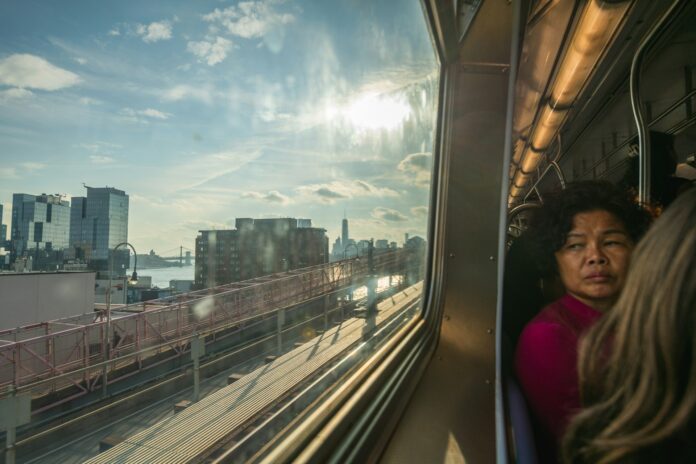It feels good, doesn’t it? For once, the city chose right. Zohran Mamdani—Muslim, socialist, Queens-born, the kind of name the tabloids used to print in suspicion—now sits where the technocrats and billionaires used to lounge. New York, that tired myth of diversity and grit, suddenly remembered its own propaganda. The subway messiah from Astoria promises trains that run, rents that stop climbing, budgets that favor the living over the dead glass of real estate speculation. The victory photos glowed with a cleanliness rarely seen in this city’s politics: a sense that something, for once, had gone correctly.
But this is New York, not Stockholm. The city that invented disappointment as an art form. Here, every hope runs on a timer.
Mamdani’s election feels radical because the bar is subterranean. After decades of soft corruption and corporate management disguised as governance, competence itself looks like revolution. His campaign spoke of fare-free transit, public housing revival, tenant protection, a moral reorientation of the municipal state. The slogans hit. They hit because everyone knows the city has been hollowed out—by landlords, banks, developers, and a political class fluent in empathy and inaction. In that vacuum, the idea of a socialist mayor sounds almost miraculous. But miracles, in this town, are always immediately privatized.
For all his rhetoric, Mamdani ran and won as a Democrat. And that detail is not minor—it’s destiny. The Democratic Party is where radical energy goes to die. It’s the graveyard of every insurgency dressed up as progress. It co-opts, flatters, funds, and neutralizes. The machine doesn’t crush its children; it hugs them to death. From Obama’s hope to AOC’s tweets, the pattern repeats: moral clarity packaged, distributed, and sold back to you by consultants who charge by the hour. You want change? Fill out form D-42, attend the gala, pose with Clooney.
Mamdani knows this. He’s too smart not to. He’s read the same histories, the same case studies of municipal socialism swallowed by fiscal “realism.” But knowledge doesn’t grant immunity. The city’s bureaucracy is a self-healing organism. Its arteries are clogged with donors, lobbyists, contractors, unions, nonprofits, and consultants whose survival depends on ensuring that nothing truly transformative ever happens. They’ll applaud his vision, then reroute it through a subcommittee. They’ll frame every compromise as maturity, every surrender as pragmatism. And soon, the mayor who promised to make the trains free will be begging Albany for permission to keep them running at all.
Still, he won the right one. In a city where Muslims were surveilled, where entire neighborhoods were treated as threats, the image of a Muslim mayor matters. It’s not symbolic; it’s structural memory reversed. The same police department that once mapped his community’s mosques will now salute him at parades. That inversion alone is worth something. But symbolism is cruelly cheap in New York. The NYPD budget remains untouchable; Wall Street remains tax-exempt. Every four years, we elect new faces to administer the same reality.
The city knows how to metabolize dissent. It turns radicals into managers, slogans into contracts, movements into marketing. The logic is older than Mamdani and stronger than charisma. It’s the logic of liberal empire: integrate the difference, neutralize the threat. The progressive mayor becomes a brand, the brand becomes a compromise, and the compromise becomes the city’s new moral ceiling. The donors sleep well. The tenants wait.
In a few months, the disappointment will begin. It won’t be dramatic. It will arrive in footnotes and budget lines. The fare-free transit pilot will shrink to a feasibility study. The housing plan will “balance stakeholder needs.” The press will praise his tone. His staff will insist that “real change takes time.” And by the end of the first year, you’ll realize the city is exactly the same—just more eloquent about its failures.
But cynicism alone is lazy. Something real did happen here. New York did elect a man who embodies everything this city pretends to be: plural, defiant, immigrant, young, unafraid. That matters. It matters because for a fleeting moment, the machinery of fear faltered. The city looked at its own reflection and didn’t flinch. The trick now is to remember that moment when the system starts its slow digestion. Because it will.
Maybe disappointment is part of the ritual. The only honest way to love this city is to expect betrayal and keep hoping anyway. Mamdani will fail, because all mayors do, especially the good ones. But failure here can be generative. Every false dawn teaches the city something about the light it wanted. If he can keep even a fraction of his promises—if he can make the subway smell less like despair, if he can delay the next eviction, if he can name the cruelty for what it is—that will be enough. Not redemption, just persistence.
New York doesn’t need purity. It needs friction. It needs someone who believes, however briefly, that the city can be more than a playground for the rich and a holding pen for everyone else. Mamdani may not survive the party, the donors, or the machinery. But for now, for this flicker, the idea of him in that office—brown, Muslim, socialist, unbent—feels like oxygen. The disappointment can wait. It always does.
